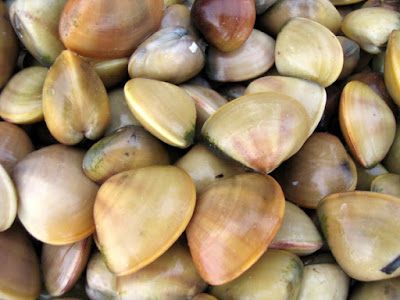The Clam Eyes Have It
Evolution is not supported by the evidence. Clam eyes have it, motion carried. Well, it seemed funny when I wrote it. Or were you unaware that those things on the beach and in the water that have hard shells have eyes? Supposedly simple organisms have simple eyes according to Darwinian mythology. Nope.
The Master Engineer has surprised scientists with the specified complexity of eyes, even with clams, scallops, and such. Their eyes are very different from ours. Although their pupils expand and contract like ours, the light hits them in a different way. The retina is between the lens of the retina. Evolutionists all the way back to the Bearded Buddha thought that their eyes were simple, but they actually support special creation and defy evolution.
 |
| Credit: RGBStock / K Rayker |
Aside for the problems noted above falsifying Darwin’s rationalization, we now know that so-called simple eyes are not at all simple, but in some ways are more complex than the so-called highest, most evolved, eye type. One review of a new article on scallop eyes concluded their eyes “function similar to telescopes, are even more complex than scientists previously knew.” Scallop is the common name of any one of numerous species of saltwater clams or marine bivalve mollusks, also commonly called clams. The scientist added scallops “have up to 200 tiny eyes along the edge of the mantle lining their shells, although scientists still don’t know exactly how they all work together to help the mollusks.” Another researcher added “For over half a century, the multitudinous mirror eyes of the lowly scallop have continuously amazed us with their visual eccentricities. The latest surprise is the mirror itself, which turns out to be an extraordinary optical wonder.”To read the entire article, click on "Complex Eyes of ‘Simple’ Clams Confound Darwin". Also, you may want to read a startling comparison at "Scallops and Telescopes".